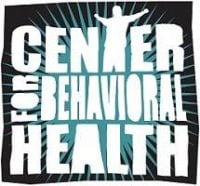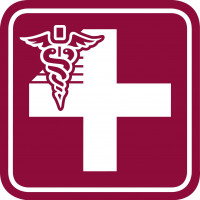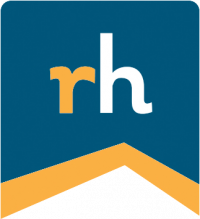
Advanced DUI and Counseling
Drug Rehab Center in Reno, Nevada
- Substance Abuse
- Opioid Addiction
- Mental Health
- Dual Diagnosis
- Drug Addiction
- Alcoholism
Advanced DUI and Counseling provides comprehensive drug rehab programs, tailored to the patient's individual needs, with aftercare and outpatient care services covered by most private health insurance plans.
About This Nevada Facility
Advanced DUI and Counseling is a leading Addiction Treatment Facility in Reno, Nevada, providing comprehensive care for people struggling with alcoholism, opioid addiction, substance abuse, dual diagnosis, drug addiction, and mental health issues. Founded in 2020, their team of experienced professionals and licensed clinicians offer compassionate and evidence-based services to help their clients in their journey to long-term recovery. Advanced DUI and Counseling offers a variety of levels of care, including aftercare support, drug rehab, dual-diagnosis, intensive outpatient, and outpatient services. As well as accepting private health insurance, their services are accredited by the Joint Commission, an independent nonprofit organization which promotes standards of healthcare quality throughout the United States.
Advanced DUI and Counseling provides comprehensive treatment plans tailored to their clients’ individual needs, with the aim of achieving long-term recovery and improved mental well-being. Their highly trained team of professionals works closely with each client to develop a personalized treatment plan; this may include a combination of both clinical and non-clinical methods, such as counseling, medication management, and holistic approaches. In addition, they offer a range of evidence-based therapies, such as cognitive-behavioral therapy, dialectical behavioral therapy, and eye movement desensitization and reprocessing, in order to help their clients process and manage their thoughts and emotions surrounding addiction.
Genders
Ages
Modality
Additional
Conditions and Issues Treated
Substance abuse typically leads to addiction, which requires specialized treatment programs at Advanced DUI and Counseling to address. Many people benefit from inpatient drug rehabilitation, which includes inpatient acute care and residential rehabilitation. Other levels of care include intensive outpatient therapy, individual counseling, and support groups. Family therapy is also an essential part of treatment for substance abuse.
A combination of treatments is often needed to treat drug abuse issues effectively. In the case of drug abuse, there is no easy answer or one-size-fits-all cure.
Substance use disorder falls under two categories: Alcohol or Drug Abuse and Drug Dependence. An individual suffering from a substance use disorder and mental health disorders is said to have a co-occurring disorder or a dual disorder.
Individuals with substance use disorders and mental health problems are said to suffer from a ‘dual diagnosis’. The most frequently identified mental health issues found in individuals with substance use disorders include anxiety, depression, schizophrenia, and schizoaffective disorder.
Levels of Care Offered at Advanced DUI and Counseling
This center offers a variety of custom treatment tailored to individual recovery. Currently available are Aftercare Support, Drug Rehab, Dual-Diagnosis, Intensive Outpatient, Outpatient, with additional therapies available as listed below.
An Intensive Outpatient Program like what’s offered at Advanced DUI and Counseling, targets those who need intensive treatment but would rather get it in the comfort of their homes. The treatment programs vary in duration and intensity. They can be tailored to suit the patient’s needs.
When remaining at their job in Reno, or continuing their studies, the individual may live with their family while utilizing Advanced DUI and Counseling‘s outpatient services. Treatment requires counseling the patient at the individual level, in a group setting, about substance addiction, drugs, and therapy sessions.
Aftercare support involves the support given to a Reno, Nevada patient after they complete treatment. It helps them adjust to normal life. It may include setting them up in a halfway house and enrolling them in programs like Narcotics Anonymous (NA) and Alcoholics Anonymous (AA). Advanced DUI and Counseling‘s patients may also be provided with career training to help them get back into the job force.
Therapies & Programs
Group therapy is an important tool in recovery. Finding a peer group in Reno, NV and others who relate to your situation is a fundamental tool for recovery at Advanced DUI and Counseling. Addiction tends to lead to isolation and feelings of uniqueness. The accountability and friendship that is found in group therapy can be more effective than any single other treatment approach. This is generally introduced early in recovery and is recommended as a lifetime treatment habit.
The first three steps depend on the patient, so they are more specific and situational. The succeeding four steps center on practical issues brought on by substance abuse. Steps 8 and 9 deal with the social and emotional repercussions of addiction, encouraging patients to make amends to people they have wronged. These are followed by two steps revolving around the further exploration and reinforcement of Steps 1 to 9.
The last step requires an individual to extend a helping hand to people who are still in the early stages of their recovery.
Payment Options Accepted
For specific insurance or payment methods please contact us.
Is your insurance accepted?
Ask an expert, call (888) 674-0062
Additional Details
Specifics, location, and helpful extra information.
Reno, Nevada 89502 Phone Number(775) 233-5316 Meta DetailsUpdated November 25, 2023
Staff Verified
What else do people call Advanced DUI and Counseling?
People have occasionally also searched for “Advanced DUI School in Nevada”
Patient Reviews
There are no reviews yet. Be the first one to write one.
Reno, Nevada Addiction Information
The state of Nevada has been plagued by drug and alcohol abuse for years. In 2015, Nevada ranked 4th in the nation for drug overdoses. More than 600 people died due to drug abuse that year and almost 70% of those overdoses were opioid-related. The state legalized medical marijuana in 2001 and recreational marijuana was also legalized in 2017.
Reno, NV, is a gambling town, and many people flock here for this reason. 444 people died from drug overdoses between 2005 and 2014. The majority of the deaths involved opioids such as heroin or morphine, followed by cocaine and methamphetamine. Alcohol is considered to be the third leading preventable cause of death being abused by about 9%. The most common treatment includes Inpatient rehab centers and Intensive outpatient programs.
Treatment in Nearby Cities
- Henderson, NV (355.5 mi.)
- Ely, NV (262.6 mi.)
- Tonopah, NV (169.8 mi.)
- North Las Vegas, NV (342.4 mi.)
- Fernley, NV (28.6 mi.)
Centers near Advanced DUI and Counseling
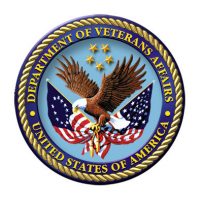
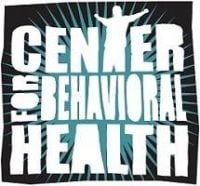
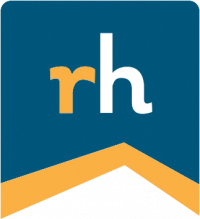
The facility name, logo and brand are the property and registered trademarks of Advanced DUI and Counseling, and are being used for identification and informational purposes only. Use of these names, logos and brands shall not imply endorsement. RehabNow.org is not affiliated with or sponsored by Advanced DUI and Counseling.

